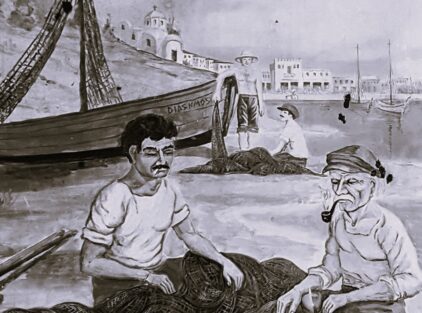by Christos Zabounis
Exactly 120 years have passed since the date that the “world champion of Letters” began to write “Fonissa”. According to the custom of the time, the novel was published in short-story installments in the magazine “Panathenaia”. It made a sensation then, both for its conception and for its flowing writing, the story of Fragoiannus, the old widow who kills after her granddaughter, and three little girls. The reason; Raised in poverty, abused by the patriarchal environment of the closed society (the island of Skiathos) where she lived, decides to free the females of her village from their future misery. The subject matter is harsh to the point of being repulsive, and one wonders what came over the producers of the film to invest nearly 1,300,000 euros to bring the classic novel to the silver screen. The answer probably lies in a tendency of the Greek fiction to return to its past. From the TV hit “Agries Melisses” to the “Pirates” and the “Kokkino Potami” or “Smyrni”, the Greeks seem to have the need to rebaptize in our History, as a counterpoint to the uncertainty of the present and the future.
Why Papadiamantis? Because he is eternal, like the Parthenon Sculptures. He lives forever, even if he wrote in the hard-to-understand, now, for the majority, clean-cut Greek dialect of past times. And yet, his language is understandable, hence his work is still included in the curriculum of the Greek schools, along with that of a poet who described Papadiamantis as “the best of the best”, Konstantinos Cavafy.
Photo by Marilena Anastasiadou













